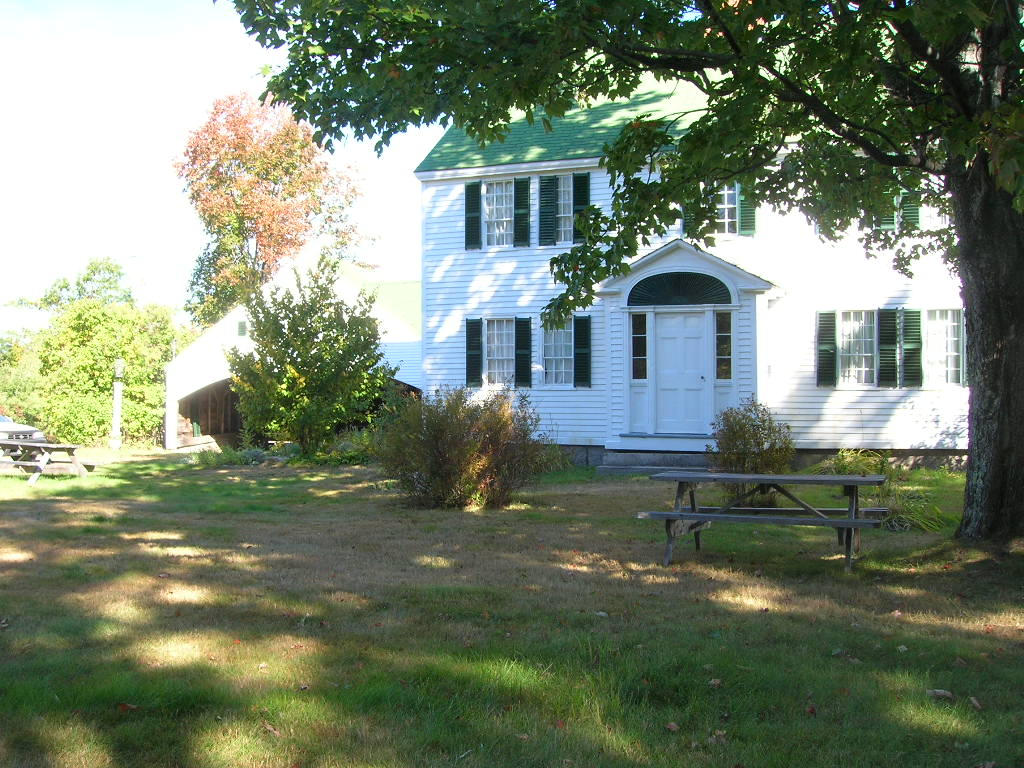A $4,200 grant from the Davis Family Foundation will allow the Bridgton Historical Society to offer a snapshot of 19th century life in real time this summer.
Funding for the society’s proposed “Cradle to Grave” series will be used to hire a summer intern to help with events and tours at the Narramissic property at Peabody-Fitch Farm in South Bridgton. It will also pay for auxiliary materials and resources that help interpret the life cycle of the farm family that lived there in the 1800s.
Planned exhibits, talks and events aim to shed light on birthing, marriage and mourning practices of a time predating hospital and funeral home services — when life often began and ended in the family home.
Local historians, staff members and volunteers will add context to the programming, providing research findings and representative memorabilia whenever possible.
“It’s a good way to bring out the story of the Narramissic property,” said historical society president Ned Allen. “We have a rich history of the homestead, that was built in 1797. It’s a wonderful old house with a spectacular hillside view, 20 acres of fields, a blacksmith shop and a restored barn.”
The house and its furnishings reflect the mid-1800s, when third-generation family member Edwin Peabody Fitch (1840-1930) lived there. At the request of his grandchildren, Peabody Fitch penned his memoirs of the home in his book, “Ninety Years of Living.”
A Civil War veteran, he returned to Maine, married his childhood sweetheart and moved to Wisconsin. The home was left to a sister, who sold much of its antique furnishings to a Massachusetts museum in 1916 when the family fortune declined.
The homestead was sold to Rhode Island native Margaret Monroe in 1938 and bequeathed to the historical society upon Monroe’s death in 1987. It opened for public viewing in 1988. Many of the previously sold artifacts, original to the home, were restored when they came up for auction in 1991.
Narramissic serves as a museum and demonstration site for interpreting early American life and crafts. During warmer months, artisans of older trades set up shop here to make and display their wares. A variety of family events also are offered, including an annual woodworkers and artisans show.
The homestead, located down a remote dirt road, is appropriately named Narramissic — a Native American word meaning “hard to find.” Allen and his colleagues hope to make this hidden gem worthy of pursuing by offering programming that captures the public’s imagination.
Margaret Reimer, secretary and program coordinator of the society’s Third Tuesdays historical talks, is only to happy to oblige.
“I love to discover the stories of the people and places of Bridgton,” said Reimer, who is creating historic presentations relevant to the “Cradle to the Grave” project. She is searching archives to discover the particulars on important turning points in 19th century area life, such as birth, death, courting and shopping practices.
“Those are the events that life is made up of and to bring them alive for people is a wonderful way to let them know what it was like to live in a place like Bridgton in the 1800s,” said Reimer, who is eager to share her findings with the public.
She’ll get her chance on Tuesday, during the society’s season-opening historical talk. Then, Reimer will present her findings on early shopping practices in town.
The talk will include items like original merchants’ records of items sold, credit lines extended to community members and how those accounts were settled — often via a bartering system.
Future talks will include presentations on the histories of area children’s summer camps; marriage and courting practices as gleaned from a Bridgton woman’s Civil War-era diary; and the role of midwives during births in the 1800’s, when doctors were few and neighboring women came to assist.
Funerary practices, detailing mourning customs of the day and caring for the dead, also will be shared.
“We’re doing a funeral in October, setting up a coffin in the farmhouse parlor, as it would have been set up for a funeral and talking about how to care for the bodies of the deceased,” said Reimer.
Staff Writer Deborah Sayer can be contacted at 791-6308 or at: dsayer@pressherald.com
Send questions/comments to the editors.



Success. Please wait for the page to reload. If the page does not reload within 5 seconds, please refresh the page.
Enter your email and password to access comments.
Hi, to comment on stories you must . This profile is in addition to your subscription and website login.
Already have a commenting profile? .
Invalid username/password.
Please check your email to confirm and complete your registration.
Only subscribers are eligible to post comments. Please subscribe or login first for digital access. Here’s why.
Use the form below to reset your password. When you've submitted your account email, we will send an email with a reset code.